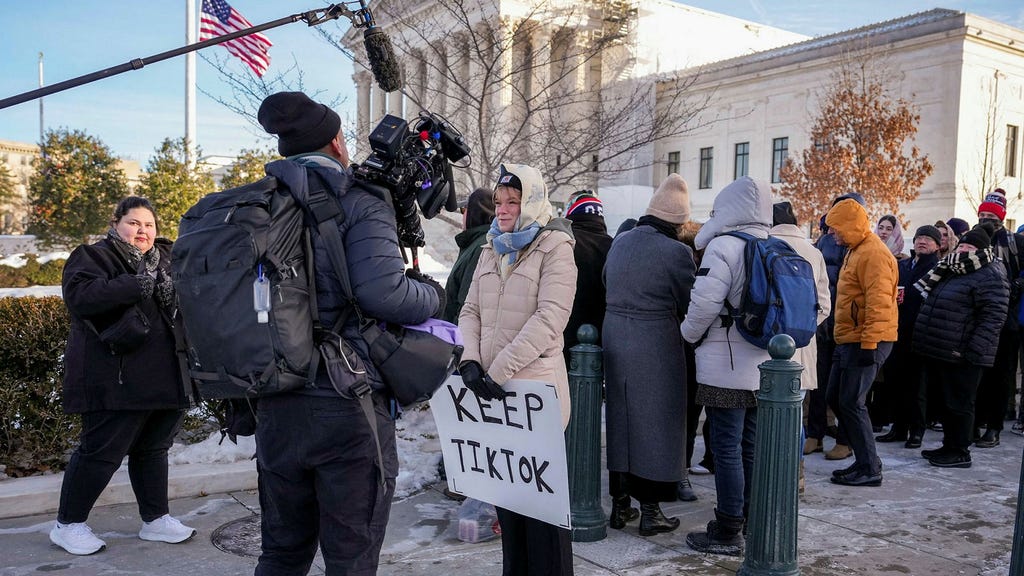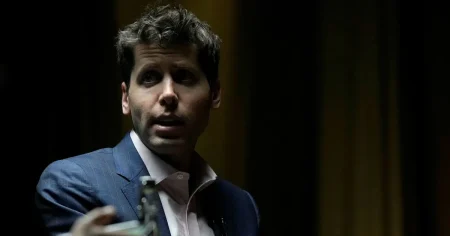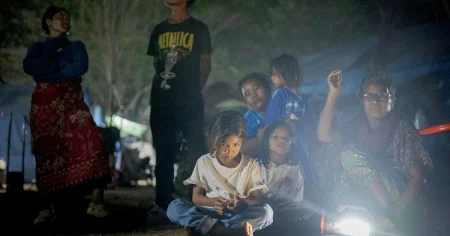TikTok, owned by the China-linked company Bytedance, is demanding clarification on the implications of a new law approved by the US Supreme Court, which could potentially lead to hefty fines for companies like Apple and Google that host the platform. The law mandates that TikTok’s US operations be sold by its Chinese parent company, which is registered in Singapore. TikTok argues that the law, if enforced without specific guidelines, could result in fines of up to $5,000 per user downloading the app in the US. The company has issued a statement urging the White House to ensure that companies hosting the app won’t face penalties, threatening to shut down its US operations as early as Sunday if no assurances are provided. However, TikTok has not clarified whether this would be a voluntary shutdown or if the platform would lose access to essential services, rendering it inoperable. The White House has downplayed TikTok’s statement, stating there is no immediate need for the platform or other companies to take action before Donald Trump’s inauguration as president.
The US Department of Justice hails the Supreme Court’s decision as a victory for national security, citing concerns about TikTok’s potential use for mass surveillance by the Chinese government, allegations that Bytedance vehemently denies. Despite the Justice Department’s stance, there appears to be hesitation among high-level decision-makers to outright ban the popular platform. The Biden administration, which initially pushed for the ban, now suggests that the decision lies with the incoming Trump administration. Trump, however, has stated that he has not yet made a decision regarding TikTok’s future in the US. The new law dictates that the sale of TikTok’s US branch is a prerequisite for its continued operation in the country. Such a transaction would likely involve hundreds of billions of dollars and is unlikely to be finalized by Sunday’s deadline. The law does, however, provide for a 90-day pause on the ban if demonstrable steps are taken towards a sale.
Adding to the complexity of the situation, TikTok CEO Shou Zi Chew is expected to attend Trump’s inauguration in Washington D.C. on Monday. While Bytedance publicly maintains that it has no intention of selling TikTok, recent media reports suggest the company might be reconsidering its position and exploring the possibility of a sale or restructuring. Chew’s attendance at the inauguration could signal a willingness to negotiate the platform’s future under the new administration. The invitation itself suggests a potential opening for dialogue and perhaps a less adversarial approach than previously anticipated.
The US isn’t alone in its concerns about TikTok. Several other countries have implemented bans, most notably India, where the platform has been banned since 2020, impacting an estimated 200 million users. Jordan and Nepal have also banned TikTok, while the Taliban banned the app in 2022, claiming it “misleads” the youth. These international actions reflect growing global concerns about data security and the potential influence of foreign governments through social media platforms. While the reasons for these bans vary, they collectively highlight the increasing scrutiny faced by TikTok.
The US Supreme Court’s decision has resonated internationally, with figures like Sweden’s Education Minister, Johan Pehrson, expressing support for the ban and urging Europe to follow suit. Pehrson, a member of the Liberal Party, referred to TikTok as a “spy app” and welcomed the US move to force it out of Chinese control. This reflects a broader sentiment among some Western politicians who view TikTok as a potential security threat and advocate for stricter regulations or outright bans. The diverse reactions underscore the complex geopolitical landscape surrounding TikTok and the challenges of balancing national security concerns with freedom of expression and the economic implications of restricting a globally popular platform.
In conclusion, TikTok faces a precarious future in the US, with its continued operation contingent upon a complex sale process and the decisions of the incoming Trump administration. While the White House downplays the urgency of the situation, TikTok’s threat of a shutdown highlights the significant impact of the new law. The backdrop of international bans and concerns about Chinese influence adds further complexity. The coming days and weeks will be crucial in determining the fate of TikTok in the US and could set a precedent for how governments around the world address similar concerns about data security and foreign influence in the tech sector. The ongoing saga highlights the challenges posed by the intersection of technology, geopolitics, and national security in an increasingly interconnected world.














